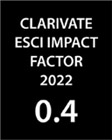Educational migration, living as migrants: Vojvodinian students in Hungary
DOI:
https://doi.org/10.17649/TET.25.4.1936Keywords:
transnationalism, ethnic and educational migration, Hungarian minority in Vojvodina, nation policyAbstract
Educational migration is considered to be one of the most significant types of migration from Serbia to Hungary. During the last twenty years, many Hungarian families in the Vojvodina (the northern region of Serbia) have decided that after finishing primary school in Serbia, their children should pursue their secondary and tertiary education in Hungary. The present study analyses empirical data and aims to present the features of educational migration across the Serbian–Hungarian border.
We define cross-border educational migration as a form of transnational migration, although the specificity of this migration is that migrants who are ethnic Hungarians move to a country which many of them considers as their mother country. The two-decades-old transnational educational migration at the Hungarian–Serbian border is a process determined by both ethnic and economic factors, and concerns primarily minority communities with Hungarian ethnic background on the Serbian side of the border.
Previous research has shown, and we have also confirmed, that Hungarian national policy with its associated instruments is unable to fulfil its most important purpose, which is to safeguard the existence of an intellectual elite in Hungarian minority communities and to help them sustain an adequate livelihood in their country of birth. The analysis of migrants’ biographies have revealed the permanent push and pull factors and transmigrant networks, which not only foster educational migration but make it a supported, legitimate individual and family strategy as well. The educational form of transnational migration is characterised by migrants being linked to two worlds simultaneously, though the connection differs according to individual circumstances, and its intensity changes over time. Although the outcome of such transnational migration is considered to be open, our research indicates that in the majority of cases, it is the first step towards permanently leaving behind the country of birth. Thus strategies and decisions concerning children’s education are at the same time long-term migratory decisions and strategies.
Downloads
Published
How to Cite
Issue
Section
License
Authors wishing to publish in the journal accept the terms and conditions detailed in the LICENSING TERMS.






